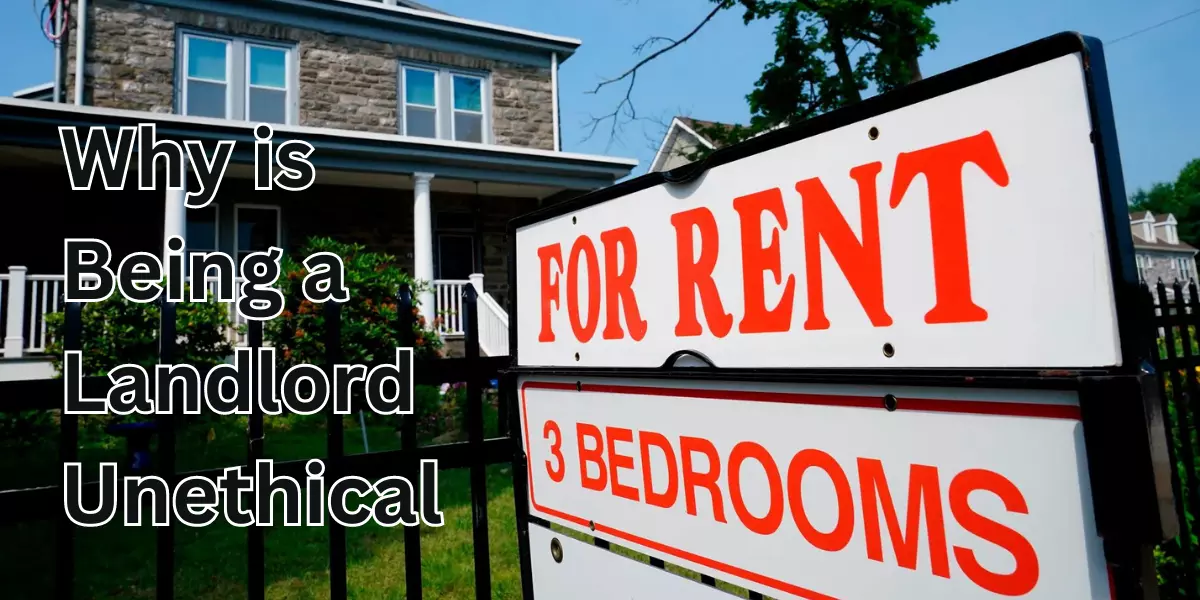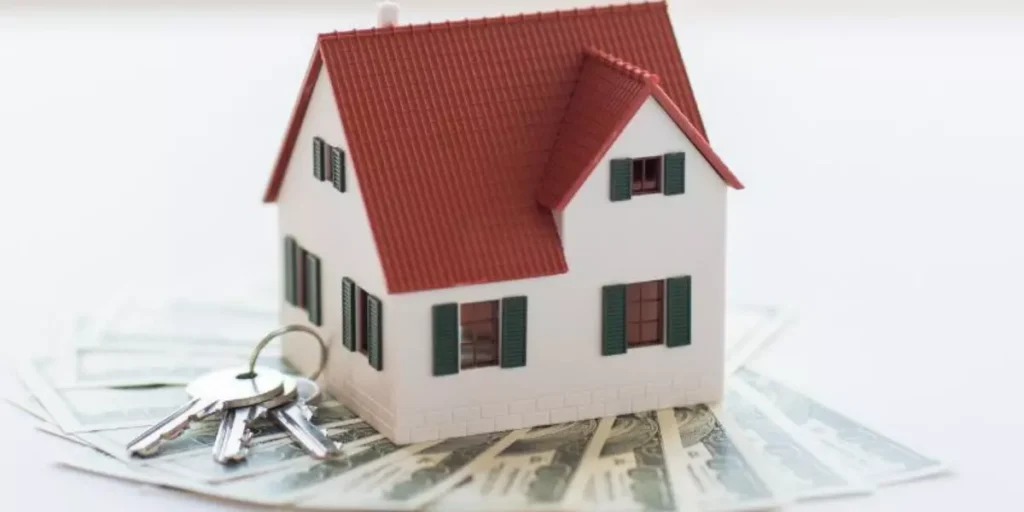Why is Being a Landlord Unethical? – Rental Awareness
Being a landlord can be seen as unethical due to issues such as exploitative rent pricing and neglectful maintenance practices. Landlords hold a unique position of power and control over their tenants.
Before you protest, let’s examine this complex issue. This brief introduction will unravel the reasons behind such a notion. Stay tuned as we dive deep into this topic.

The Ethics Of Profiting From Basic Human Needs
As humans, we all have certain basic needs, such as shelter, food, and clothing. In today’s world, where capitalistic values reign supreme, access to these basic needs is often limited to those who can afford to pay.
When it comes to housing, the situation becomes even more complicated, as the moral implications of profiting from such a basic human need come into play.
The Concept Of Basic Human Needs
Basic human needs are those essentials that are necessary for our survival as human beings. These include food, water, shelter, clothing, and healthcare.
All individuals have a right to access these basic needs, regardless of their income or social status.
The Role Of Housing In Fulfilling Basic Human Needs
Housing plays a crucial role in fulfilling the basic human need for shelter. Access to safe, secure, and affordable housing is necessary for an individual’s physical and mental well-being.
Without access to adequate housing, individuals and families can suffer significant stress and hardship.
The Moral Implications Of Exploiting The Basic Human Need For Housing
While landlords may argue that they are providing a valuable service by offering housing, the reality isn’t the same.
In many cases, they are exploiting the basic human need for shelter for financial gain. This can lead to significant moral implications, including:
Homelessness and poverty
The high cost of housing can contribute to homelessness and poverty, particularly among those who are already marginalized or vulnerable.
Discrimination
Those who do not meet certain financial or social criteria may be denied access to safe, secure, and affordable housing.
Health impacts
Poor quality housing can have significant health impacts, including the spread of diseases, respiratory problems, and mental health issues.
Inequality
The cost of housing can contribute to income inequality, as those who are unable to afford housing are often forced into substandard living conditions.
Profiting from basic human needs, such as housing, raises significant moral questions about the ethics of the practice.
As society continues to navigate the intersection of capitalism and morality, it is essential to consider how we can ensure that all individuals have access to the basic needs necessary for our survival and well-being.

The Negative Social Impact Of Landlordism
Renting out property has been a popular long-term investment, but it has its drawbacks. Being a landlord is unethical, and the consequences can be profound. Let’s take a closer look at the negative social impact of landlordism.
The Impact Of Landlords On Affordable Housing
Landlords’ actions can increase the cost of housing in several ways. They may buy properties that would ordinarily have been sold to homebuyers, reducing the supply of available homes. Rents rise as a result of the competitive market created by a lack of supply.
This can make it difficult for lower-income earners to afford to rent or buy homes.
- Property speculation and landlords make it challenging for low-income individuals to find homes at below-market prices.
- When there is a lack of affordable housing, individuals can find themselves homeless.
- Rental homes may be poorly maintained by landlords, affecting the overall quality of life for renters.
The Rise Of The Landlord Class And Its Impact On Wealth Inequality
The growing gap between the richest and poorest members of society has been fueled by landlordism. A small number of wealthy individuals owning vast real estate empires contributes to the widening economic inequality gap.
- Wealth inequality is exacerbated by landlords, with a small group owning multiple properties.
- Owning property has become a way for the wealthy to increase their income and accumulate more wealth.
- Renters, on the other hand, become less likely to invest in and accumulate wealth as their available discretionary income decreases.

The Social Costs Of Landlordism On Communities And The Broader Economy
The broader economic and social costs of landlordism are multifaceted and far-reaching. Job creation, business development, and investments in education and infrastructure development may all be negatively impacted by the actions of landlords in a given area.
- Communities can become gentrified, and long-term residents and small businesses may be pushed out.
- Landlords have been shown to deprive local economies of investment and job creation.
- Landlords are also known to influence local and national regulations to promote their financial interests rather than those of society as a whole.
The negative social impact of landlordism cannot be overstated. While there are a few responsible landlords, many take advantage of their position to increase their wealth at the expense of their tenants and the community’s wellbeing.
We must work towards policies that promote affordable housing for all and prioritize the long-term health and prosperity of our communities over the individual profit motive.
Ethical Alternatives To Landlordism
Being a landlord often comes with a lot of ethical dilemmas. From charging exorbitant rent to evicting tenants without valid reasons, the negative consequences of landlordism cannot be ignored.
However, there are ethical alternatives to landlordism that can provide affordable housing to renters in need.
The Potential Of Community Land Trusts To Provide Affordable Housing
Community land trusts are non-profit organizations that acquire land and property to provide affordable housing to low-income earners. Here are some key points:
- Community land trusts are governed by a board of trustees who oversee the acquisition and management of the property.
- Community land trusts can provide long-term affordable housing to residents through various means, such as shared equity homeownership or rental housing.
- Community land trusts are a sustainable way of providing affordable housing, as the trust retains ownership of the property, preventing it from being sold at market rates.
The Role Of Government In Ensuring Access To Housing As A Basic Human Right
Access to housing is not a privilege but a basic human right. Governments have a crucial role to play in ensuring access to affordable housing for everyone. Here are some key points:
- The government can provide financial support for affordable housing initiatives, such as low-income housing tax credits.
- The government can regulate the housing market by implementing rent control policies and tenant protections.
- The government can provide public housing and social housing initiatives to ensure that everyone has access to safe and secure housing.

Other Approaches To Housing
Apart from community land trusts and government initiatives, other alternatives to landlordism can provide affordable housing to renters. Here are some key points:
- Cooperative ownership models involve residents collectively owning and managing the property they live in. This eliminates the role of landlords, reducing the cost of housing and maintaining affordability.
- Social housing initiatives are non-profit housing developments that provide affordable housing to low-income earners. These developments are often subsidized by the government, making them more affordable than market-rate housing.
Frequently Asked Questions For Why Is Being A Landlord Unethical
Is It Ethical To Be A Landlord?
Being a landlord can be ethical if you conduct your business with honesty and integrity.
How Does Being A Landlord Affect The Community?
Being a landlord can have a positive impact on the community by providing affordable housing.
What Are Some Common Landlord-Tenant Issues?
Common issues include rent payment, maintenance, and lease violations.
What Are The Legal Responsibilities Of A Landlord?
Legal responsibilities include providing safe housing, making repairs, and following fair housing laws.
Conclusion
Embracing ethical practices is key. As a landlord, you can play your part by treating tenants fairly, maintaining your property well, and offering reasonable rental rates.
So, while being a landlord isn’t inherently unethical, your actions can certainly tip the balance. Let’s redefine landlord ethics together.
References
https://www.hud.gov/complaints/badlandlord
https://www.justice.gov/crt/fair-housing-act-1